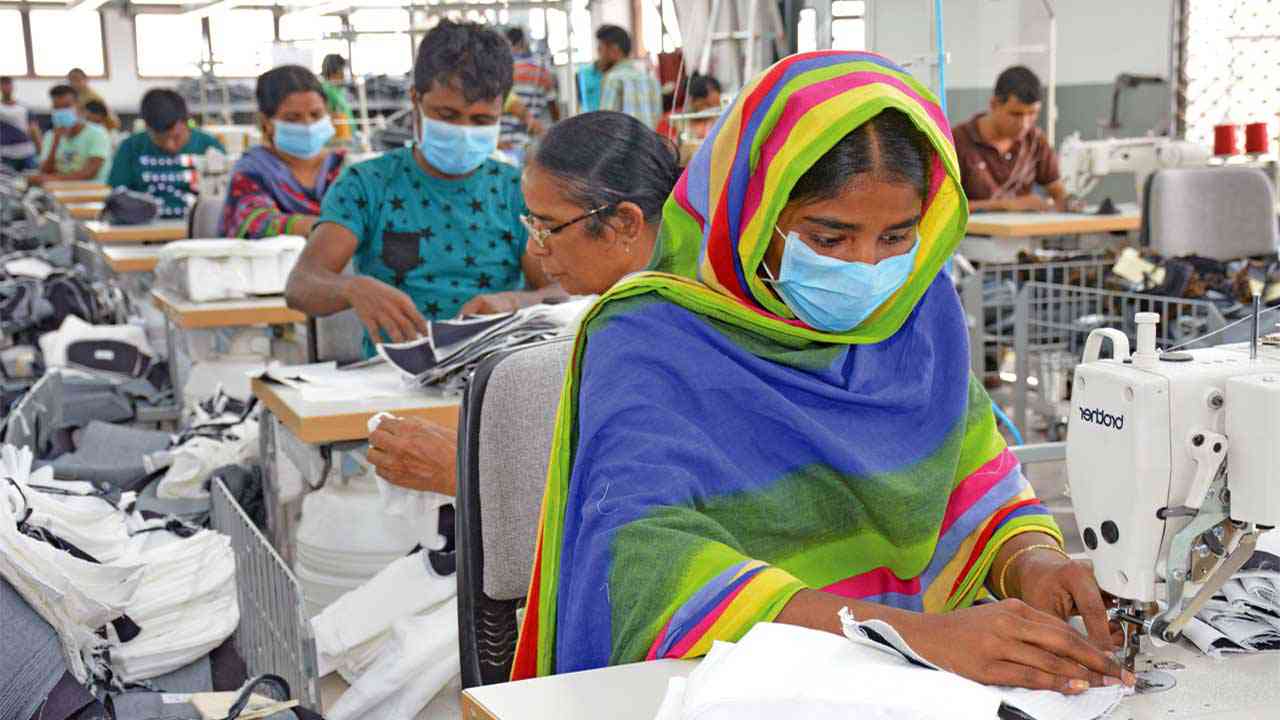
Mauritius commemorated, on Wednesday 2nd November 2016, the arrival of the first indentured labourers from India in 1834. Nearly two centuries later, Mauritius is still heavily dependent on the contribution of migrant workers for its economic growth.
Foreign workers play an important role in the shaping of the economy of Mauritius. Due to shortage of labour in many sectors, and the issue of mismatch of skills, local enterprises are compelled to have recourse to foreign labour. The history of migrant workers to Mauritius dates back to 2nd November 1834, when the first indentured labourers reached the shores of Mauritius on board the ship Atlas on Sunday 2nd November 1834.

On 9 September 1834, G. C. Arbuthnot, representative of Hunter Arbuthnot & Co. of Mauritius, signed a five-year contract with 36 Hill Coolies, before the Chief Magistrate, D. McFarlan at the Calcutta Police Office. Their monthly salary was five rupees and they received six months’ pay in advance. One rupee was retained for the passage. Food and clothing were provided according to a fixed scale. The Chief Magistrate read and explained the content of the contract to the coolies, with the help of an interpreter. On approval of the agreement, the recruits then affixed their thumb marks on the contract. On 15 September, these 36 indentured labourers embarked on board the Atlas which reached the colony on Sunday 2 November 1834. During the subsequent five years, about 500,000 workers arrived from India. The bulk of them chose to settle here at the end of their contract.

Today, Mauritius still has recourse to foreign workers to man its industries. After independence in 1968, the introduction of ‘Import Substitution Industries’ created employment for local people and the advent of the Export Processing Zone in the 70s and 80s boosted employment further. By the 90s, a shortage of labour was felt to maintain the growth momentum in the manufacturing sector and local enterprises started hiring foreign workers, mainly from China. Today, with the Chinese economy in full bloom, it is becoming increasingly difficult to attract Chinese migrant workers, therefore most enterprises are now hiring Bangladeshi workers.

In 2015, there were 22,951 foreign workers in Mauritius (as depicted in the Table below). The number has been increasing over the past few years, though there has been a huge decline compared to the 2000s. Most of the workers are engaged in the manufacturing and textiles sectors, with some in the hospitality industry, education, health, agriculture and ICT sectors. Demand for foreign workers is high because of labour shortage in Mauritius and also because of the existence of a skills mismatch between available workforce and the demand of industries. Ironically, the country, according to official statistics, has about 43,100 unemployed persons. It must be noted that there are strict rules governing the recruitment of foreign workers, and only selected sectors are eligible. In 2008, a report by the National Economic and Social Council (NESC) underlined the growing importance of foreign labour in Mauritius. At that time, the country employed as many as 35,000 foreign workers, mainly in the manufacturing sector.

In a paper entitled “Foreign Labour in the Manufacturing Sector: Evidence from Mauritius”, Dr. Verena Tandrayen-Ragoobur of the University of Mauritius writes that “One of the reasons for local firms to employ foreign labour is that they expect these workers to be extremely productive and cheap. It is perceived that foreign workers are more compliant, work longer hours and may not urge for higher wages like local workers. The rate of absenteeism is also very low among the foreigners. Sometimes, local workers lack motivation and are not willing to work overtime and night shifts. Another reason that causes firms to employ more foreign labour is labour shortages in the local economy. Higher economic development leads to higher educational attainment and increased income. Educated people are less willing to take up manual and low-paid jobs or blue-collar jobs. For instance, the open economy of Mauritius has transformed the structure of its workforce such that Mauritians are not willing to work in the low paid manual jobs in the construction and textile sectors and have a strong preference for occupations in the public sector or the services sector.”
Life is about toiling
Every foreign worker has a story to tell. Life is not always rosy for these workers who choose to leave their home country in search of a better future, escaping poverty and life of miseries. To start with, many workers have to pay a lot of money to recruitment agents. Some fall prey to false promises of high wages and excellent working conditions. There are cases where migrant workers toil from early morning to late night and earn meagre wages. But there also other workers who find other odd jobs outside their official working hours in order to earn more so that they can save and send money to their families back home. During the past few years, there have been cases in Mauritius where migrant workers have complained about poor working and living conditions, being forced to live in crowded unhygienic dormitories with poor sanitation and other facilities. By law, any employer is obliged to provide decent accommodation with necessary amenities and officers conduct regular inspection to check for compliance.
In many cases, workers who suffer are reluctant to complain for fear of losing their jobs. Having taken loans in order to come here, they are forced to put up with the conditions. Some workers do not mind working day and night. News on Sunday met some workers living on the outskirts of Port Louis. These workers toil at night in a factory, and spend the day doing odd jobs elsewhere in order to increase their earnings. “The wages we get are insufficient. Cost of living is high in Mauritius. We make a lot of sacrifices to work harder and earn more so that we can help our families. Many people are nice and they pay our dues, but sometimes some people make us work very hard and pay little.” There have been cases where migrant workers have been victims of thefts, as they are frequently attacked and their homes burgled. There are cases where workers are not paid for months, and they have to rely on the generosity of Mauritian neighbours. The plight of these migrant workers reminds us of the miseries faced by the indentured labourers two centuries ago. As we commemorate their arrival this week, we forget that the same situation prevails. Only the context has changed…
 Permits
Permits
There are two types of permits allowing non-citizens to work in Mauritius: The ‘Work Permit’ and the ‘Occupation Permit’. The work permit is governed by the ‘Non-Citizens (Employment Restriction) Act’ and is issued by the ministry of labour and employment while the Occupation Permit is issued by the Passport and Immigration Office upon the recommendation of the Board of Investment. Workers who earn a basic salary of up to Rs 60,000 per month have to apply for a work permit. Those who earn more than 60,000 per month have to apply for an occupation permit.
‘Occupation Permit’
There are three types of occupation permit: Investor, Professional and Self Employed. To be eligible as Investor, a non-citizen must show evidence of his capacity to invest at least 100,000 US dollars (or its equivalent in any convertible currency) in Mauritius. Moreover, his business activity should be able to generate a turnover exceeding Rs 4 million annually. However, in the last Budget, the minister has eased this requirement, bringing the turnover threshold to Rs 2 million during the first year of operation, provided the cumulative turnover for the next two years is at least Rs 10 million. The reason is because most enterprises take quite some time to set up and they are thus unable to achieve the required turnover during the first year of operation. To obtain a ‘Professional’ occupation permit, the non-citizen must be employed in Mauritius with a basic monthly salary exceeding
Rs 60,000. However, for employment in the ICT sector, the salary threshold is Rs 30,000. A Self Employed permit is issued to any professional working on his own, in a liberal profession, if he is likely to generate an annual income of Rs 600,000. The Self Employed non-citizen must also invest at least 35,000 USD in Mauritius. An application for occupation permit is processed in about two weeks. Dependents of applicants are eligible for residence permit.
 J'aime
J'aime














